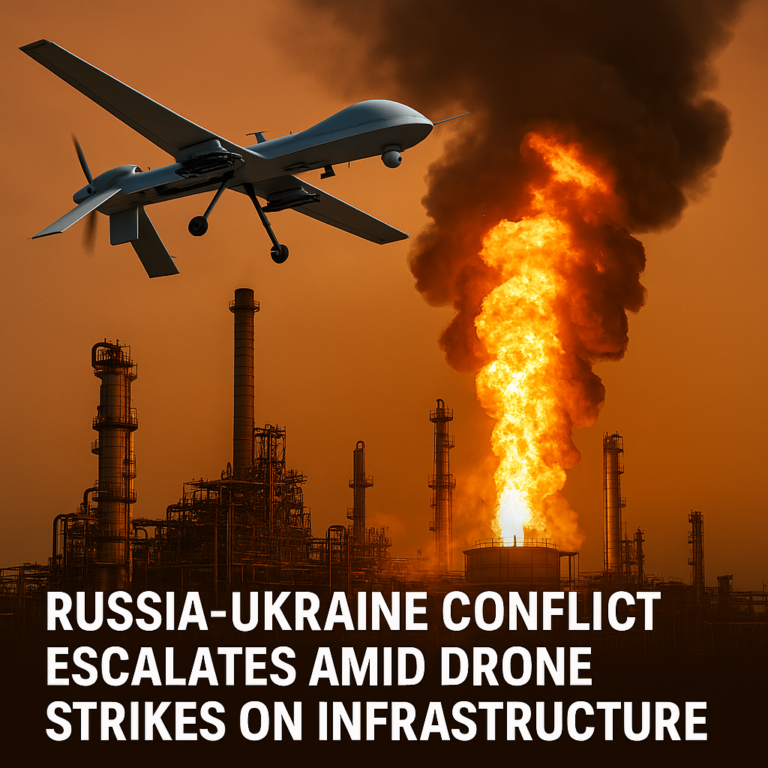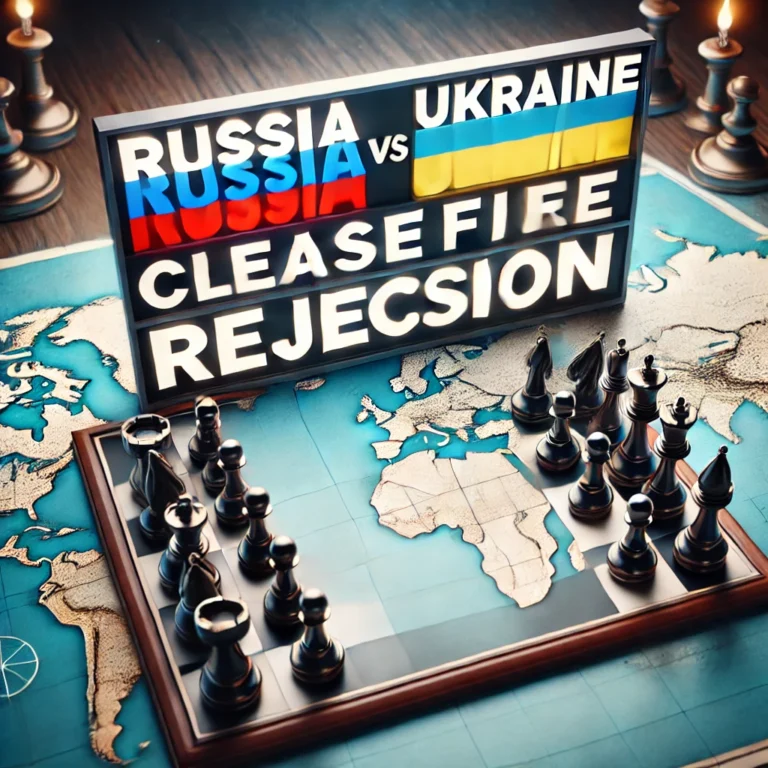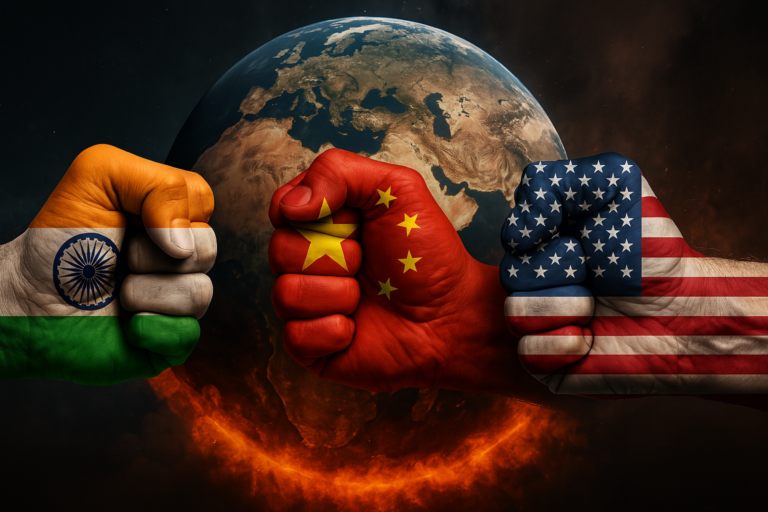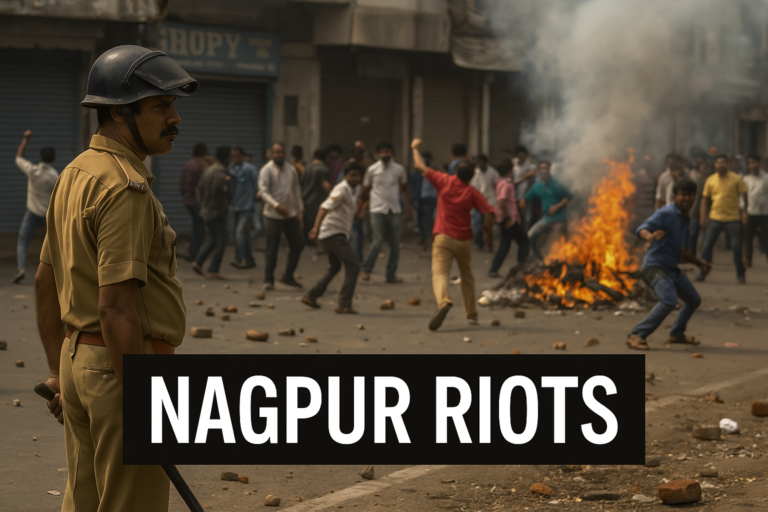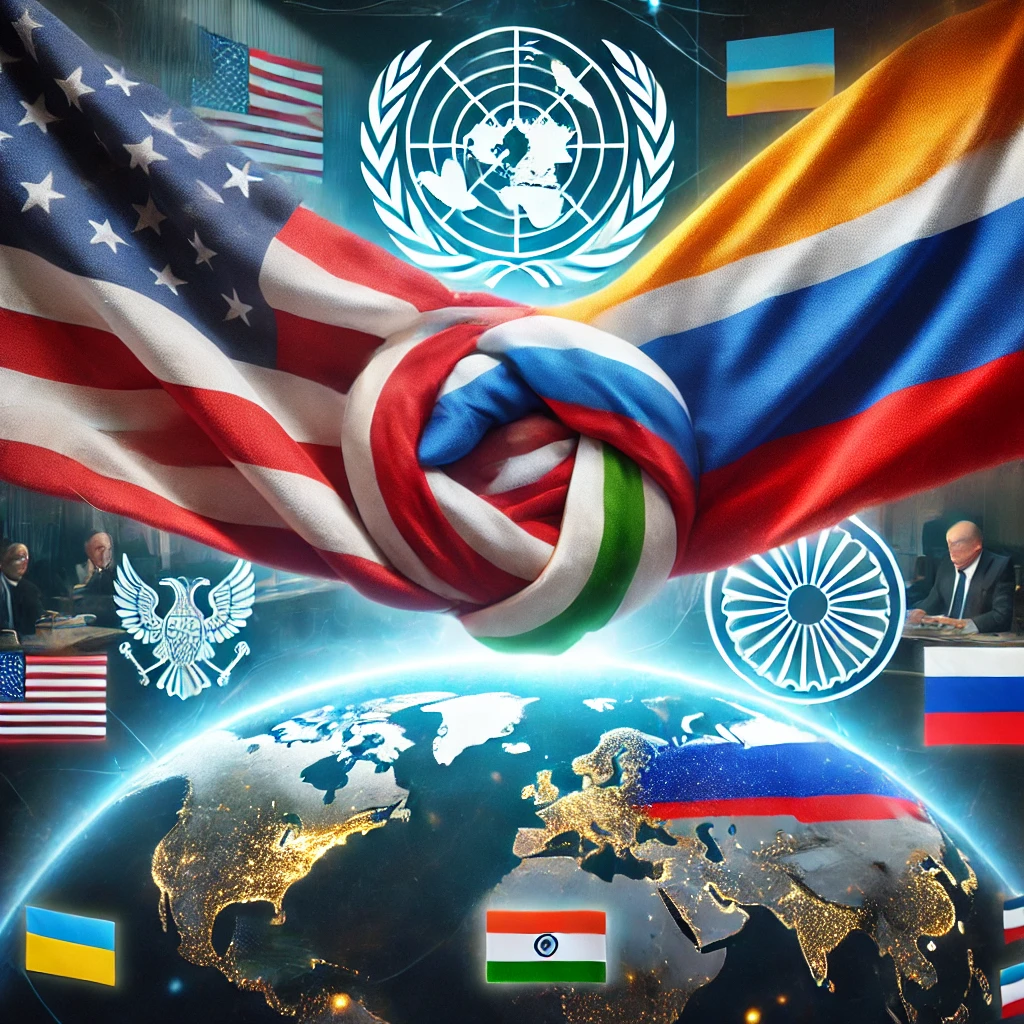
U.S. and Russia flags intertwined, with India’s flag symbolizing the strategic interests of India in the evolving global relations.
Introduction: A Shift Beyond Imagination in U.S.-Russia Relations
The U.S.-Russia relations shift is happening right now. Imagine two global superpowers, once bitter rivals, setting aside decades of animosity. Could the U.S. and Russia, who almost brought the world to the brink of destruction during the Cold War, now find common ground? This surprising transformation is reshaping the global order. It is having far-reaching consequences. From NATO expansion to Ukraine’s sovereignty, the geopolitical landscape is changing. But the most important question is: What does this shift mean for India?
A Surprising Shift in U.S.-Russia Relations
For years, the U.S. and Russia were bitter rivals. U.S. foreign policy firmly opposed Russia’s expansion, especially through NATO. But recently, a startling development has unfolded. The U.S. and Russia are moving closer. Former President Donald Trump plays a key role in this realignment. The U.S. withdrew support for Ukraine’s NATO membership. Trump’s peace proposals have sent shockwaves through global politics.
This rapprochement was unthinkable just a few years ago. Yet now, the U.S. publicly supports Russia in the U.N. General Assembly. It advocates for a peace deal in Ukraine and pushes to end sanctions. This shift has massive implications for global geopolitics. And for countries like India, it changes the foreign policy game.

Ukraine’s NATO Dream: A Casualty of U.S.-Russia Cooperation
For over a decade, Ukraine’s NATO dream was a central point of tension between Russia and the West. Russia feared NATO’s eastward expansion and saw Ukraine’s membership as a red line. But now, with Trump’s stance and the U.S. turning away from supporting Ukraine’s NATO bid, this issue may be settled. Ukraine faces a no-win situation: losing hope for NATO membership while facing Russian aggression without U.S. support.
For more on Trump’s stance on Ukraine’s NATO aspirations, read The Economic Times and Business Standard.
How Does This Affect Global Geopolitics?
The shift in U.S.-Russia relations has already begun reshaping the global political landscape. While Europe grapples with the consequences, India stands at a crossroads. Historically, India has balanced relations with both Russia and the U.S. But as U.S.-Russia cooperation grows, India’s maneuvering space shrinks.
If the U.S. and Russia continue to grow closer, India may find itself in a bind. India will have to make tough decisions about defense deals, trade agreements, and broader international alliances. Non-alignment may no longer be a feasible option, and India could face increased pressure to take sides, isolating it from key global players.

The Trump-Putin Partnership: A Game-Changer for Europe and Beyond
As Trump and Putin form an unlikely partnership, Europe is scrambling to understand its implications. Trump’s willingness to overlook Russia’s actions and prioritize a deal that benefits both the U.S. and Russia—often at Ukraine’s expense—has struck a blow to Europe’s security strategy.
For India, the fallout from this partnership is concerning. U.S. and Russia’s joint efforts to ease tensions and create a new world order could limit India’s influence. The diplomatic leverage India has built could be weakened as both countries consolidate power in ways that disadvantage non-aligned countries.
What Does This Mean for India?
- A Weakened Strategic Balance
India has balanced its relations with Russia and the U.S. to maximize its strategic interests. Russia has been a trusted defense partner. The U.S. has provided economic ties and security cooperation. But with the U.S. and Russia aligning, India may have fewer options. If both powers shift their focus, India could struggle to secure favorable defense deals and technology access. - Limited Foreign Policy Flexibility
India’s non-alignment policy has worked well, but as global alliances solidify, India’s diplomatic space shrinks. As U.S.-Russia cooperation deepens, India may face increased pressure to pick sides, limiting its ability to pursue independent goals. - Increased Vulnerability in Global Forums
In international organizations like the United Nations, India has balanced its votes between Russia and the U.S. But if both act in concert, India may lose its ability to remain neutral. If both powers side with aggressive actions, India could be isolated, lacking support from key players on global issues. - The Threat of Losing Strategic Autonomy
The growing U.S.-Russia partnership directly threatens India’s strategic autonomy. If India is forced to pick sides, it may have to compromise its long-term security goals. India’s pursuit of defense deals with Russia, such as the S-400 missile system, could face greater scrutiny from the U.S., limiting India’s ability to protect its interests.
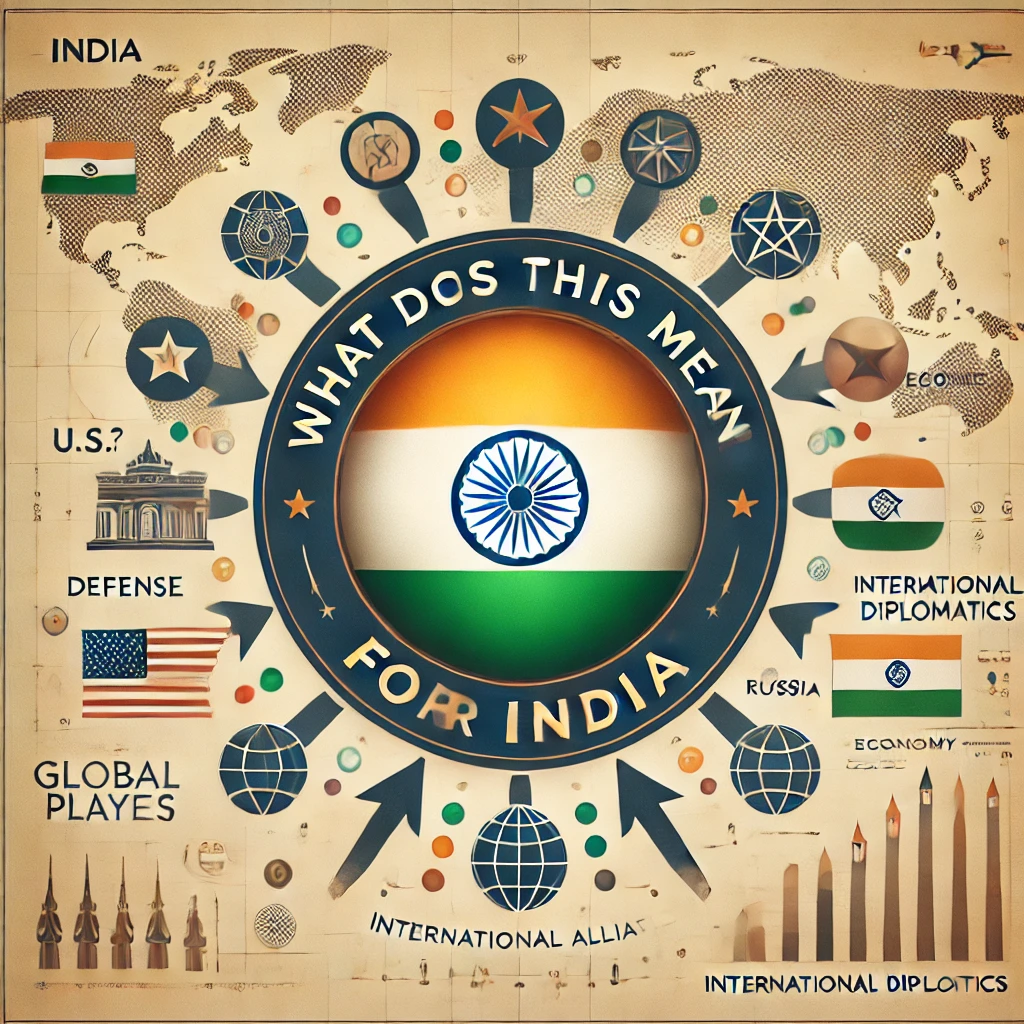
India’s Next Steps: Staying Strategic in a Changing World
India’s foreign policy has always prioritized strategic autonomy, but this will become harder as global powers realign. With the U.S. and Russia drawing closer, India must reassess its position. India should continue prioritizing national interests and prepare for the challenges of a shifting global order.
India’s stance in the coming years will shape how it navigates these changes. Whether India continues balancing its relations or adopts a more defined stance, careful diplomacy and foresight are key. The future of India’s foreign policy is uncertain, but the U.S.-Russia relationship will play a central role in shaping that future.
Conclusion: A New World Order Awaits
The U.S.-Russia rapprochement marks a new chapter in global geopolitics. It has far-reaching consequences for the balance of power worldwide. For India, this shift presents both challenges and opportunities. India must remain vigilant, recalibrate its foreign policy, and continue engaging with global powers in ways that best serve its national interests. As global politics continue to evolve, India’s ability to navigate this new reality will define its place in the emerging world order.
For more updates on global geopolitics and India’s strategic interests, visit Suchak News.
